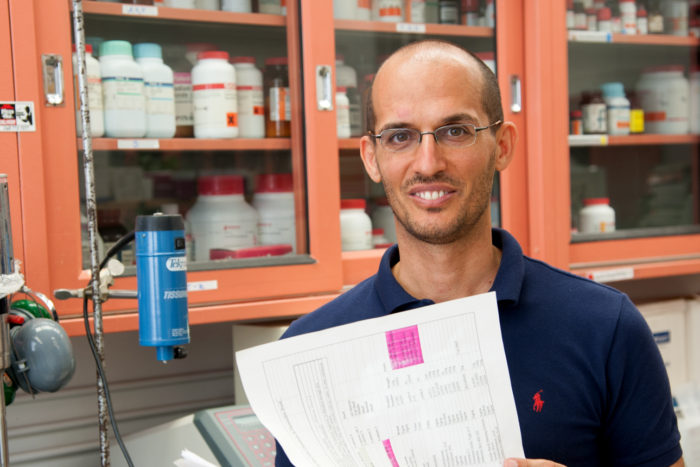Studies explore intermittent fasting, Mediterranean diet
Two new studies are looking at whether intermittent fasting and consuming a Mediterranean diet may improve health and extend life
 Robert Boston
Robert BostonNutrition researcher and aging expert, Luigi Fontana, MD, PhD.
Past research at Washington University has shown that severely restricting calories every day extends lifespan and fosters health in animals and may do the same for people. Now two new studies will explore whether people can gain any of the same benefits by fasting just a few days a week.
“We know there are benefits from calorie restriction, but most people don’t want to do it. It’s too tough,” says Washington University nutrition researcher and aging expert Luigi Fontana, MD, PhD, the studies’ principal investigator. “The good news is that data from animals shows that intermittent fasting may be as effective in extending lifespan and improving health.”
Benefits may include preventing diabetes, heart disease and certain cancers, he says.
Intermittent fasting
Since a British physician and journalist wrote a best-selling book and produced a television documentary touting benefits of the 5-2 diet, which calls for fasting two days a week and eating normally on the other five, thousands of people worldwide have tried it. But Fontana says intermittent fasting hasn’t been studied enough in people. To learn more, he is now recruiting volunteers for two studies.
“These are the first studies of this strategy where we are looking comprehensively at markers of inflammation, changes in metabolic and cardiovascular function and health,” Fontana says.
Instead of cutting calorie intake by 25 percent to 30 percent at every meal as do practitioners of calorie restriction, those who participate in these studies will be asked to fast for two or three days each week.
“But participants won’t have to completely abstain from food on days they fast,” Fontana says. “At dinnertime, they can eat a large salad or raw or cooked green vegetables with a small amount of olive oil. But no protein, starchy vegetables like potatoes, or bread are allowed. ”
Western vs. Mediterranean diet
On non-fasting days, participants in one of the studies will eat like they normally would, consuming a standard Western diet. In the second study, participants will be randomized to eat either a Western diet or a Mediterranean Diet on their non-fast days.
The Mediterranean Diet is rich in vegetables, beans and grains, whole-wheat breads and pasta. The only meats consumed as part of the diet are fish or poultry. Mediterranean Diet meals will be provided for participants randomized to that group.
The first study, which involves only intermittent fasting, continues for a year. The study involving the Mediterranean Diet will last for four months. All subjects will undergo testing at the start, having blood drawn, receiving a body composition test, an oral glucose tolerance test and an electrocardiogram. Visits and various tests also will be required a few times during the course of each study. Some subjects also will be asked whether they want to undergo a colon biopsy to identify possible colon cancer risk.
Those randomized to the Mediterranean Diet also will have to visit the medical center two-to-three times per week to pick up their meals.
Connection to aging and longevity
As subjects lose weight, Fontana’s team will monitor their weight loss, but they are less concerned with intermittent fasting’s effects on weight than its relationship to changes connected to aging and longevity.
“We want to learn whether intermittent fasting provides health benefits similar to those seen in people who practice calorie restriction, but we also want to know whether cutting fat and eating more legumes and whole grains will produce even better results,” Fontana explains. “We believe these studies will help answer those questions, both for weight loss and in terms of other markers of health and longevity.”
All study related visits, tests and dietary consultations are provided free of charge.
For more information or to volunteer, call study coordinator, Shohreh at 314-362-2399 or e-mail sjamalab@dom.wustl.edu.
Learn more about calorie restriction research at Washington University School of Medicine.








